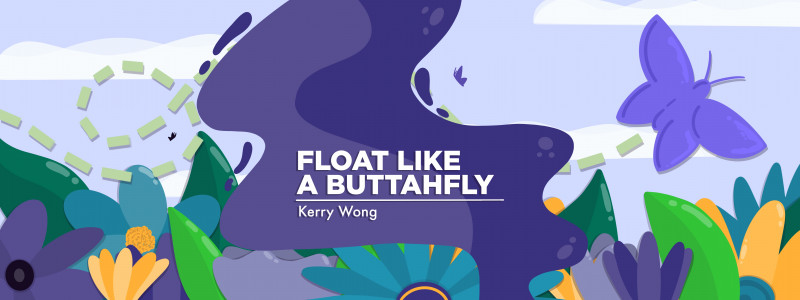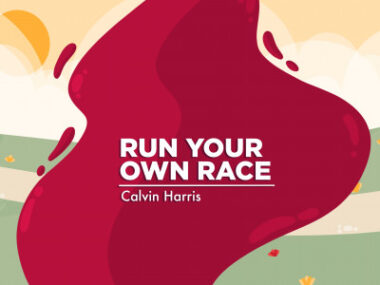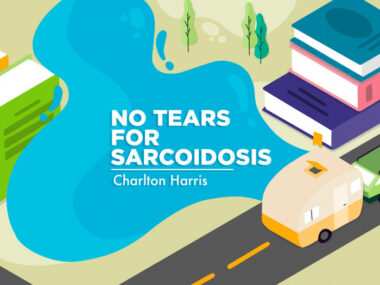It’s OK to get angry when our best-laid plans go awry
Letting go of the ableist narrative that I should 'just be grateful'
Written by |

I started writing this column a few weeks ago when I was angry. I was irate, it was festering, and I had to get it out. I started jotting down my thoughts, with the clickety-clack of my nails on the keyboard beating harder and faster than usual. If I were a cartoon, smoke would have been coming out of my ears and laptop.
But then I closed the tab and started writing something else. I didn’t want to write angry. I didn’t want to publish angry. I didn’t want to be angry. I always want to be full of hope, and for my writing to inspire the same.
Still, I was fuming. In that moment, I didn’t want to be cheerful. I wanted to reside in my resentment for a bit. I had to remind myself that doing so was OK. We are allowed to have — and express — negative emotions.
What was I so mad about? I had to miss a New York Liberty (WNBA) game.
I know, I should be used to it. With sarcoidosis, I have to miss games often. But this felt different.
This time, it wasn’t for the usual reasons. I wasn’t feeling too unwell. It wasn’t an inaccessible venue. My schedule wasn’t overbooked with medical appointments. I was showered, dressed, and ready to go, but my elevator wasn’t working.
My apartment is on the fifth floor, so I would have had to walk down four flights of stairs (and back up again later). My husband would have had to walk those stairs carrying my 50-pound mobility scooter. That might be a challenge for a nondisabled person, but it was a nonstarter for me.
Between rheumatoid, osteo-, and sarcoid arthritis, my joints hurt even when I’m not using them. Fibromyalgia adds muscle soreness and overwhelming fatigue that turn any activity into a Herculean effort. Pulmonary sarcoidosis leaves me wheezing and short of breath just walking down the hall. And, of course, there’s my propensity for falling. So all I could do was go back inside and stew.
Part of me felt like I should just be grateful. There are so many ways this could have been worse. I should be glad that I was stuck at home, rather than out somewhere, unable to get home.
Glad that it was “just a game” I was missing, not a necessary infusion treatment.
Just a game, not a medical appointment that would take months to reschedule.
Just a game, not a wedding or other special occasion.
Just a game, and there would be others to attend.
And I was glad, really. Well, mostly.
But it wasn’t “just a game” to me.
This was the first game after the WNBA All-Star break. I knew there would be special recognition because one of our players had just won the All-Star 3-point contest, another won the All-Star Skills Challenge, and a third was on the game-winning All-Star team. It also marked the return of last year’s WNBA Finals MVP, who had been out for several weeks with an injury. The energy at a New York Liberty game is always electric; I knew this one would be even more so, and I couldn’t wait.
I had cleared my schedule the previous day to conserve energy and reserved the following day to recover. I’d gotten tickets in an accessible section. I’d packed my stadium-approved bag with medication, hand sanitizer, rally towel, and team-colored face mask. I’d dressed in my “Cloud 9” shirt (for player No. 9, Natasha Cloud) with matching sparkly glasses and shoes, Liberty hat and watch, and coordinating bracelets. I was ready.
So when I walked to the elevator and couldn’t go any farther, it was more than passively “missing out.” It felt like someone had actively taken this moment of joy away from me. There was someone (or something) to blame, somewhere to direct my anger.
But then I berated myself for getting so mad. It wasn’t the first time the elevator had gotten stuck, and it wouldn’t be the last. I should just get over it. It’s not that big a deal.
And that admonition is precisely why I returned to this column.
People living with chronic illness or disability (and other marginalized communities) are often made to feel that we are a burden on society, that we should just smile and be happy with whatever scraps of life we can get. We internalize that ableist message, making ourselves smaller each time.
What we must remember is that we are still people, capable and deserving of the full range of human emotion and experience. It doesn’t have to be “big enough” or “bad enough” to justify a reaction. Our feelings are valid. Even if it’s “just a game,” if it matters to us, it matters.
Because we matter, just as we are.
Note: Sarcoidosis News is strictly a news and information website about the disease. It does not provide medical advice, diagnosis, or treatment. This content is not intended to be a substitute for professional medical advice, diagnosis, or treatment. Always seek the advice of your physician or other qualified health provider with any questions you may have regarding a medical condition. Never disregard professional medical advice or delay in seeking it because of something you have read on this website. The opinions expressed in this column are not those of Sarcoidosis News or its parent company, Bionews, and are intended to spark discussion about issues pertaining to sarcoidosis.






Sandra Petersen
I just went through this ! I was angry and felt guilty. TWO APPT HAD TO BE CANCELLED BECAUSE NO AUTH, I did complain to pop and felt qulty! Now I know I was justified. I matter my time counts. Thank you for your post
Michelle
Than you so very much,
You are so right we are made to feel we are all burden on society .It crushes you till you suffer in silence watching everyone around you go on in their lives while you are confided to your home 24/7 . If you ask for help its always too much effort ect.
But we are human beings and we need to step up too .